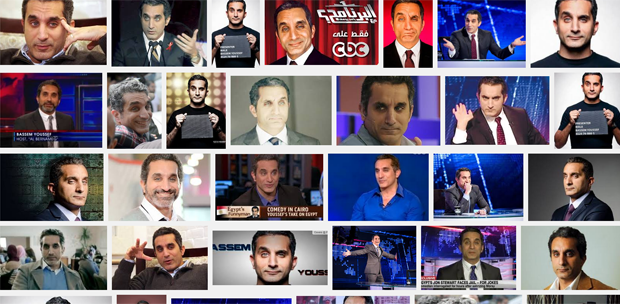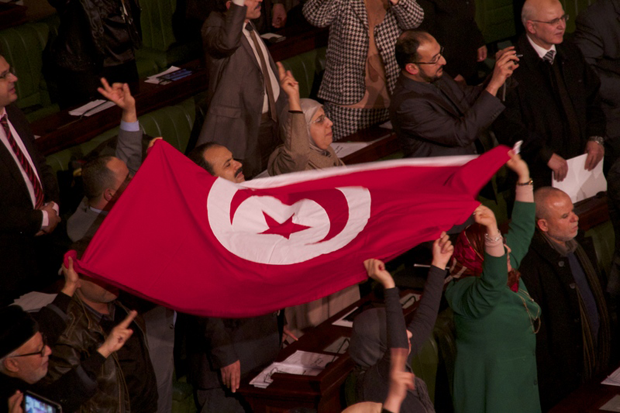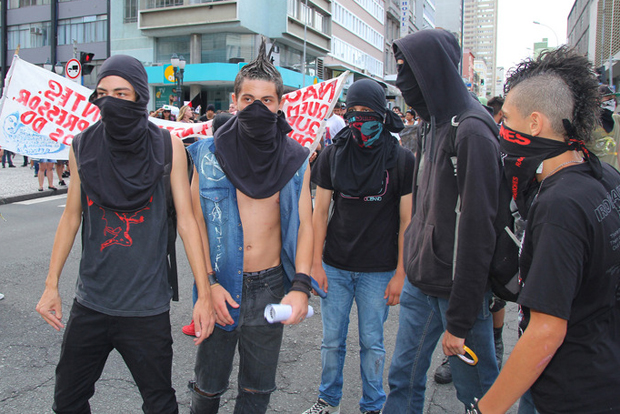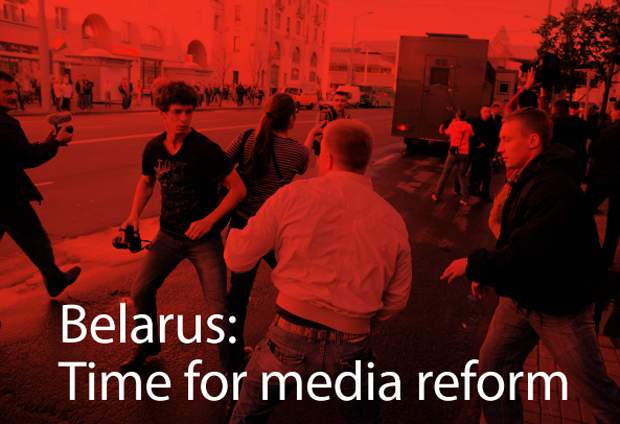10 Feb 2014 | Belarus, News and features
Join Index at a presentation of a new policy paper on media freedom in Belarus on 19 February, 2014, 15.00 at the Office for Democratic Belarus in Brussels.
This article is the first of a series based on the Index on Censorship report Belarus: Time for media reform
Belarus continues to have one of the most restrictive and hostile media environments in Europe.
Despite pressure from international sources recent years have brought no genuine improvements to the media situation. In a country that has not held a free or fair election since 1994, the authorities keep tight control over the media as a means of preserving their power.
The country’s media market is strictly controlled by the Belarusian government. That control rigs the media market to benefit state-owned providers and impedes the development of independent print and television outlets through legislative and administrative restrictions. The state-owned media enjoys significant budget subsidies, favourable advertising and distribution contracts with government agencies. In comparison, independent publications face economic discrimination and distribution restrictions. Field research conducted for this policy paper in Belarus found clear differences between editorial policies of the media based on their ownership including the topics they cover and their approaches to coverage.
The internet has become an important source of independent information for Belarusians. The development of online news media is hindered by the structure of the internet market, which is dominated by large portals and services, including many Russian sites. Belarusian authorities also aim at tighter regulation of internet as outlined in Index’s policy paper, Belarus: Pulling the Plug.
Restrictive media legislation and its oppressive implementation has made the media landscape unfavourable for freedom of expression. Media law forces new outlets to register and regulations give the state the power to close down media even for minor infringements. Accreditation procedures are used to restrict journalists’ access to information and foreign correspondents face additional obstacles in reporting from the country. The criminalisation of defamation, anti-extremism legislation and other laws are being used to curtail media freedom and persecute independent journalists and publishers. The police use violence and detain journalists, especially those who cover protests. Reporters are routinely sentenced to administrative arrests and fines.
Despite ongoing pressure by international bodies such as Index on Censorship, the authorities of the country have been quite reluctant to discuss or implement recommendations on media legislation or changes in practices of their implementation to bring them in line with international standards.
Index urges the Belarusian authorities to immediately remove all contraventions of human rights and media freedom. The much-needed reforms of the media field should be launched in order to end harassment and persecution of journalists, and eliminate excessive state interference in media freedom. The outline of these reforms should result from a dialogue with professional community and civil society of the country.
The European Union and other international institutions must place the issue of media freedom on the agenda of any dialogue with the Belarusian authorities to demand genuine reforms to bring the Belarus media-related legislation and practices of its implementation in line with the Belarusian Constitution and its international commitments in the field of freedom of expression.
****
Freedom of expression and freedom of the press is guaranteed in the Belarusian Constitution. But despite the authorities of the country stating it “has a full-fledged national information space” that “develops dynamically”, the country is one of the world’s worst places for media freedom. Belarus is listed 193 out of 197, lowest in the 2013 Freedom of the Press rating by Freedom House. Reporters Without Borders rank it 157 out of 179 countries in their 2013 Press Freedom Index.
According to Thomas Hammarberg, a former Council of Europe Commissioner for Human Rights, “free, independent and pluralistic media based on freedom of information and expression are a core element of any functioning democracy; freedom of the media is also essential for the protection of all other human rights.”
The media freedom situation and the form of the Belarusian media market are affected by the overall political situation. The media field is tightly regulated by the authorities of the country that see close control over the information sphere as their basis of preserving power. Belarus is described as “not free” in terms of political freedoms and is criticised for its overall poor human rights record. No election or national referendum in Belarus has been recognised as free and fair by OSCE ODIHR since President Alexander Lukashenko came to power in 1994. According to Belarusian human rights organisations, there are currently 11 political prisoners behind bars. The report of the UN Special Rapporteur on the situation of human rights in Belarus suggests there are serious problems with freedom of expression, freedom of assembly, freedom of association and other fundamental rights and freedoms.
Serious concerns over profound and systemic problems with media freedom in Belarus have been highlighted on numerous occasions by the European Parliament, the OSCE Representative on Freedom of the Media and the UN Special Rapporteur on the situation of human rights in Belarus, as well as civil society within the country.
“The Belarusian independent media fulfil a crucial role in the state dominated media landscape in Belarus and have been one of the main victims of the authorities’ crackdown on independent opinions after the 2010 Presidential elections,” said the EU Commissioner for Enlargement and Neighbourhood Policy Štefan Füle.
The main areas of concern are the restrictive legal framework, issues of impunity and journalists’ safety as well as the ongoing economic discrimination by the state against independent media.
Part 1 Belarus: Europe’s most hostile media environment | Part 2 Belarus: A distorted media market strangles independent voices | Part 3 Belarus: Legal frameworks and regulations stifle new competitors | Part 4 Belarus: Violence and intimidation of journalists unchecked | Part 5 Belarus must reform its approach to media freedom
A full report in PDF is available here
This article was published on 10 February 2014 at indexoncensorship.org
10 Feb 2014 | Egypt, News and features

With much anticipation, Egyptians huddled around their television sets on Friday night to watch their favourite comedian, Bassem Youssef, make his debut appearance on the Saudi-funded MBC Misr Channel after a three-month absence from the small screen.
Youssef’s fans were not disappointed: They were treated to a full hour of non-stop laughter as the satirist, often compared to US comedian John Stewart, took jibes at the current state of the media and at the Egyptian public’s infatuation with defence minister field marshall Abdel Fattah El Sisi. Youssef cracked jokes about how everything in the country revolves around El Sisi whose name crops up on practically every TV show including cookery and sports programmes.
Youssef opened the show with a pledge not to talk about “sensitive political issues” that had previously caused his satirical show Al Bernameg, The Programme, to be pulled off the air by the management of the privately-owned Egyptian CBC satellite channel. Minutes later, he reversed his decision. “What are we going to talk about?” he asked his studio audience before throwing caution to the wind and starting to poke fun at the Sisi-mania gripping the country. He stopped short however, of taking aim at El Sisi himself, making no secret of the fact that such action would provoke a negative response from the censors.
” It’s better we don’t mention him,” he said as a silhouette- image of the military chief appeared on the screen . “Not out of fear but out of respect,” he sarcastically retorted.
Youssef’s show Al Bernameg was suspended last October following a controversial episode that CBC administrators said had “violated editorial policies and caused discontent among viewers.” In that episode–his first appearance since Islamist president Mohamed Morsi was toppled by military-backed protests in July– Youssef had poked fun at the Egyptian public’s blind idolisation of General El Sisi, widely expected to become the country’s next president. That had been enough to land him in trouble.
Not only was the show pulled off the air, but Youssef was also lambasted mercilessly by pro-military supporters in both the traditional media and social media. The attacks on Youssef did not stop there: Criminal charges were brought against him by angry citizens who accused him of “insulting the military.”
The legal complaints lodged against Youssef in November were not the first time the popular satirist had been indicted. In March 2013, he was investigated by the public prosecutor on a set of charges ranging from “insulting Pakistan” to “spreading atheism” and “insulting Islam and the president.” The accusations against him were triggered by his persistent ridiculing of then-president Mohamed Morsi. In an episode of the show early last year, he appeared on the set wearing a gigantic hat similar to one worn by Morsi when he received an honorary doctorate from a Pakistani university. Youssef’s unabashed lampooning of the former president delighted the former president’s opponents while earning Youssef the wrath of his Islamist supporters.
Youssef was not convicted. After an investigation lasting five-hours, he was released on $2,200 bail and went right back to mocking Morsi.
His indictment triggered an international outcry, raising concerns over regression on the country’s hard won freedom of expression and press freedom. Little did anyone –let alone Youssef himself who later joined the June 30 protests demanding the downfall of the Muslim Brotherhood regime—suspect at the time that those freedoms would be further undermined and eroded by the military-backed regime that would replace Morsi three months later.
Since Morsi’s ouster, restrictions on the press have been even “greater than those imposed by either Morsi or his predecessor, autocrat Hosni Mubarak”, lament press freedom advocates and media analysts. The intimidation and harassment of journalists including increased physical assaults on them by security forces and by ordinary Egyptians supportive of the military, have raised concerns about the safety of journalists working in Egypt and press freedom in the country.
The indictment of 20 journalists – four of them foreign correspondents—has fuelled fears of a widening crackdown on journalists critical of the military-backed government. Eight of the defendants are journalists working with the Al Jazeera network –four of whom languish in prison on charges of “spreading false news and assisting or belonging to a terrorist organization.” Similar charges have been leveled against the sixteen other defendants in the case including Dutch journalist Rena Nejtes who last week, managed to flee the country, escaping arrest.
Sue Turton, one of two British defendants in what has come to be known as the “Al Jazeera case” told CNN on Friday that “the crackdown by the Egyptian authorities was targeting all journalists who do not tow the government line. ” She and fellow British defendant Dominic Kane are safely out of the country unlike Australian award-winning journalist Peter Greste who has been behind bars for six weeks. On Sunday, his parents made an impassioned appeal to Egyptian authorities for his release. Speaking to journalists in a press conference in Cairo, they described the accusations against him as “bizarre” and “ludicrous.” Juris Greste , Peter’s father, insisted his son’s detention was ” unfair and unjustifiable,” and urged prosecutors to release him immediately.
In a worldwide campaign to press for the release of the four Al Jazeera journalists, fellow-journalists from different countries across the globe have expressed solidarity with the defendants. They posted their own pictures on social media networks—with their mouths plastered ” to symbolize the Egyptian regime’s gagging of the press,” one campaigner explained via her Twitter account.
The detention of the Al Jazeera journalists is having a chilling effect on journalists working in Egypt, forcing many local journalists to practice self- censorship for fear of potential government reprisals. Others have fallen silent.
In the current hostile environment , it is not surprising that Youssef too is uncertain if he will be allowed to continue broadcasting his show. Wrapping up Friday’s episode, he asked “Second episode ?” before bursting out laughing. In the country’s repressive climate, no one can predict what might happen next.
This article was posted on 10 February 2014 at indexoncensorship.org
10 Feb 2014 | News and features, Politics and Society, Tunisia

After decades of dictatorship and two years of arguments and compromises, Tunisians finally have a new constitution laying the foundations for a new democracy. Deputies celebrating the ratification of the new constitution for Tunisia. Photo: Mohamed Krit / Demotix
The Arab Network for Human Rights Information (ANHRI), a human rights umbrella organisation based in Cairo, issued a statement on 3 February strongly denouncing a recent attack on journalists in Tunisia. The incident saw a presenter and cameraman working for attacked by 5 members of the Tunisian General Labour Union.
The attack of 29 January happened as journalists working for satellite channel al-Mutawasit attempted to cover a strike outside the Tunisian General Labour Union’s provincial headquarters in Sfax. Tunisian news site Hour News reports that 5 union members attacked the two-man crew, threatening them and seizing recording equipment. The equipment was returned only after intense negotiations, and was found stripped of memory cards documenting the incident.
According to al-Mutawasit, this is far from the first such incident. In fact, they claim to have been victim to “a fierce onslaught” by the security services. Officials from the channel allege that, after a string of interrogations, eight members of the security forces stormed the studio on 31 October 2013, during a live discussion about the drafting of a new constitution. According to the presenter Salih Atiya, the officials gave no hint as to the justification for their surprise visit, and refused to give their names for security reasons.
The most recent confrontation on 29 January, and the increased incidence of attacks on journalists in the preceding months, has led the Media Protection League of Tunisia to issue an open letter, dated 2 February, to Tunisia’s new prime minister Mehdi Jomaa. In the letter, the group demanded a review of current legal protection for journalists, especially the hotly-debated Press Laws of 2011, which continue to be legally enforced despite controversy surrounding their contents.
This string of events, which appear to constitute a crackdown on the freedoms enjoyed by Tunisian television, print and radio broadcasters, comes amid growing optimism for the state of freedom of expression in other areas. Recent reports that Jabeur Mejri, sentenced to 7 ½ years in prison over a Facebook post, is to be released have sparked hope that the judiciary is becoming more mindful of human rights legislation.
Moreover, the signing of Tunisia’s new constitution on 27 January, after more than 2 years of wrangling, generated enthusiastic praise from inside the country and out. Prominent Tunisian human rights advocate Lina Ben Mhemni reported that it contains “some victories, but is not a triumph”, while others outside Tunisia were less measured. According to Women Living Under Muslim Law, it is a “progressive and monumental” document, one that makes Tunisia more progressive than the US with regards to women’s and workers’ rights, as well as health care and climate change. The Doha Centre for Media Freedom issued a specific statement praising the constitution for “enhancing freedom of expression“, detailing clauses that insist on “the freedom of access to information”.
The ratification of Tunisia’s new constitution undoubtedly marks an important victory for progressives in the country. However, the attack of 28 January and the events leading up to it leave one wondering how far press freedoms now enshrined in law will be protected in practice.
This article was published on 10 February 2014 at indexoncensorship.org
10 Feb 2014 | Americas, Brazil, News and features, Politics and Society

In Curitiba, about 300 protesters took to the streets of the central city asking for more health and safety improvements in the country and against the hosting of the World Cup 2014 in Brazil. (Image: João Frigério / Demotix)
On 8 January, residents in Rio’s Metrô-Mangueira favela, were greeted by government representatives, set to demolish houses and evict residents. A demonstration was led then by the residents to fight their removal, but once again violence broke out between the police and the protestors, with police firing rubber bullets into crowds.
Rio On Watch said: “Having evicted long-time residents to public housing units without any public consultation over the use of land – required by local legislation – the city left the land and houses to be occupied by those in most desperate need of public housing.” These “desperate” residents are now being forced out and given no alternative housing, despite promises from mayor Eduardo Paes that nobody would be left homeless.
The demonstration in the Metrô favela, is emblematic of the current mood all across Brazil. Triggered by a hike in already expensive bus fares, 2013 saw Brazil’s biggest protest movement for over 20 years, in what became known as the “V for Vinegar” movement or the “Salad Revolution”. More than two million protestors took to the streets to fight against issues such as government corruption, poor social services and a rise in the cost of living. Right at the heart of the movement however, was a feeling of alienation and exclusion from the decision making process for the preparations of the 2014 World Cup.
According to the United Nations Human Rights Council, in the context of the implementation of sporting mega events, all UN states must, “ensure full transparency of the planning and implementation process and the meaningful participation of the affected local communities therein”. However this transparency is not happening in Brazil as authorities bulldoze favelas, and replace them with car parks and shopping centres.
A report by the National Coalition of Local Committees for a People’s World Cup and Olympics said: “Supported by a twisted notion of ‘public interest’, the Brazilian state has systematically refused to establish horizontal dialogues with civil society groups and threatened communities.”
In many cases residents learn of their evictions through the media before government communications. This was true for the residents of Vila Autódromo in Rio, who first learned of their proposed eviction through the front page of the O Globo newspaper on 4 October 2011.
In other cases, residents are told by authorities that their properties must be demolished because of alleged structural risks. Three hundred homes were identified for demolition because of such “structural risks” in Pavão-Pavãozinho, but residents have been waiting since July 2011 for authorities to provide evidence of such risks. This is a further example of the Brazilian government failing to offer their citizens information or ensure political transparency.
The government has established two bodies to organise the World Cup, which exist outside the normal political structure. The 2014 World Cup Steering Committee and the Committee Responsible for Host Cities liaise with FIFA, the federal government and advisory bodies mostly comprised of private companies. Decisions made by these bodies are not discussed with the public, and information regarding plans is excluded from the general population.
In Curitiba, the population unanimously opposed the council’s decision to give £22.5m to the private construction of the João Américo Guimarães Stadium. However requests for information were denied and there was no public participation in the council’s decision.
The example of the João Américo Guimarães Stadium, is typical of the wider situation whereby the government is spending billions of dollars on the construction of infrastructure and stadiums without giving the people a say in the matter. The Arena da Amazônia stadium in Manaus has cost £151m, while The Economist estimates that the Brazilian government has already spent £1.9 billion on World Cup stadiums collectively.
Marcelo Pelligrini, a journalist from São Paulo told Index on Censorship: “This is a huge stadium [Arena da Amazônia] because of the standards of FIFA, but after the World Cup we have no use for this stadium, and after the tournament it will probably become a jail.”
“The main point in Brazil is the use of these millionaire stadiums. That is what the population is complaining about. They are spending half a billion reias on a stadium that has no use after the World Cup, and we have no good transportation, no health insurance, we have nothing,” Mr Pelligrini said.
The World Cup is not benefiting the Brazilian people, according to Pelligrini: “We have great stadiums, but no good services.” He also felt that the Brazilian people were not being given democratic representation in the decision making process.
Denied a say in the preparations for the World Cup, the Brazilian people flocked to the streets in 2013, to protest against the way the government has been organising the tournament. The protests were driven by a multitude of building grievances, but a feeling that the democratic process had broken down, and the voice of the Brazilian people was being ignored, was at the heart of the demonstrations. Protestors held banners proclaiming, “FIFA go home”, “We don’t need the World Cup, we need money for hospitals and education” and “World Cup for whom?”
These sentiments epitomise the zeitgeist of the Brazilian nation, and their feeling that the World Cup has only benefited the few, while he vast majority are excluded from the decisions and thus the benefits.
The recent protest in the Metrô-Mangueira favela underlines how these grievances are ongoing. The image of residents clashing once more with riot police depicts the ultimate breakdown in communications and democracy in the lead-up to the biggest, and supposedly most unifying, football tournament in the world.
This article was posted on February 10 2014 at indexoncensorship.org




